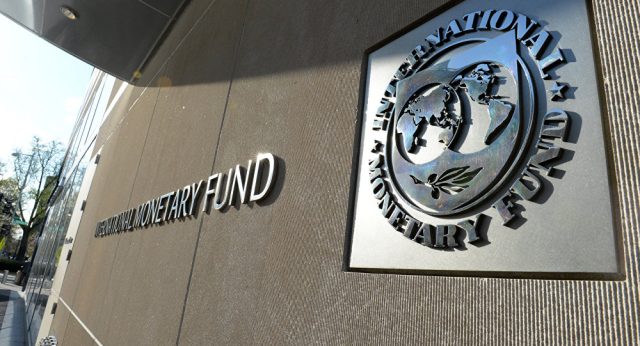The International Monetary Fund (IMF) has backed Nigeria’s landmark tax reform, describing it as a major step toward modernising its revenue system. However, it warned that significant fiscal gains from the overhaul are unlikely to materialise in 2025.
The Fund disclosed this on Wednesday in its 2025 Article IV Consultation report.
Last Thursday, the Senate passed the Nigerian Tax Act 2025, consolidating four separate tax reform bills into one law. The new legislation merges the Nigerian Tax Act, Nigerian Tax Administration Act, Nigerian Revenue Service Act, and Joint Revenue Board Act, aiming to streamline Nigeria’s complex tax structure.
The IMF said the reforms would modernise Nigeria’s tax system, which has long relied on colonial-era structures that hinder transparency and limit growth. Nigeria’s tax-to-GDP ratio remains one of the lowest globally.
The IMF said the reform would help improve tax compliance and enforcement.
“The tax reform bills prepared by the Presidential Committee on Fiscal Policy and Tax Reforms and approved by parliament will modernise the VAT and CIT systems, which should improve compliance and facilitate enforcement,” it stated in its report.
It also welcomed the legislative milestone: “Staff welcomes the adoption of the four tax reform bills that will modernise Nigeria’s tax system, incentivising compliance and enhancing enforcement.”
According to the Fund’s estimates, the full package of reforms could raise 4.2 per cent of GDP in additional revenue over time.
This includes 1.2 per cent from VAT reforms such as taxing fuel products and adopting e-invoicing; 1.0 per cent from company income tax changes like a top-up tax on multinationals and rationalisation of incentives; 0.1 per cent from excise taxes on telecoms and gaming; and 1.8 per cent from improved tax administration using data and compliance cross-checks.
However, the IMF warned that the expected revenue boost would not be felt immediately.
“Given that tax policy reforms under consideration are not expected to deliver significant revenue gains in 2025, adjustments would have to come from the expenditure side.”
The Fund also said the government’s decision to hold off on raising the VAT rate is justified, for now.
“The decision not to raise the VAT rate now is reasonable, given high poverty and food insecurity and with the cash transfer system to support the most vulnerable households not yet fully rolled out.”
Still, the delay is expected to have consequences.
“This will reduce consolidated government revenue by up to ½ per cent of GDP in the authorities’ estimates,” the report said, noting that state and local governments may have to either find alternative revenue sources or cut spending.
READ ALSO: IMF hails Nigeria’s economic reforms, says growth projected at 3.4% in 2025
The IMF further warned that Nigeria’s fiscal deficit 2025 could exceed budget expectations if fuel subsidy savings fail to materialise and oil revenue projections prove overly optimistic.
“Absent policy actions, the fiscal deficit in 2025 would exceed budget expectations. The 2025 budget was based on optimistic hydrocarbon revenue projections.”
To protect stability, the fund recommended: “A neutral fiscal stance in 2025 to safeguard macroeconomic stabilisation, while prioritising growth-enhancing investment and support to the most vulnerable.”
The report concluded that further tax policy measures and improved public investment efficiency would be necessary over the medium term to create fiscal space and ensure sustainability.
“Bringing the fuel subsidy savings on budget, and, over ,time as the cost-of-living crisis eases, taking further tax policy measures is needed to create fiscal space.”
Support PREMIUM TIMES’ journalism of integrity and credibility
At Premium Times, we firmly believe in the importance of high-quality journalism. Recognizing that not everyone can afford costly news subscriptions, we are dedicated to delivering meticulously researched, fact-checked news that remains freely accessible to all.
Whether you turn to Premium Times for daily updates, in-depth investigations into pressing national issues, or entertaining trending stories, we value your readership.
It’s essential to acknowledge that news production incurs expenses, and we take pride in never placing our stories behind a prohibitive paywall.
Would you consider supporting us with a modest contribution on a monthly basis to help maintain our commitment to free, accessible news?
TEXT AD: Call Willie – +2348098788999










